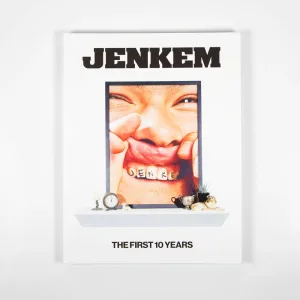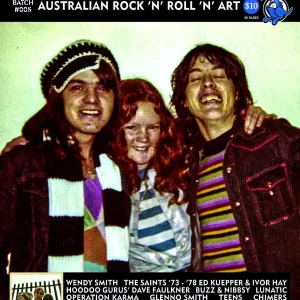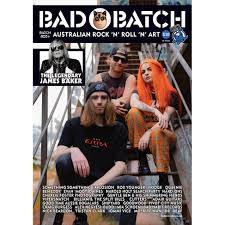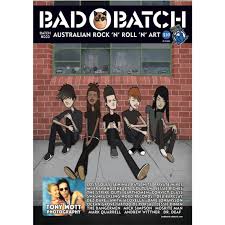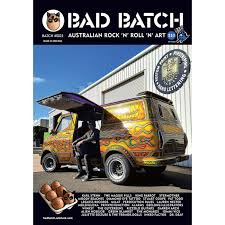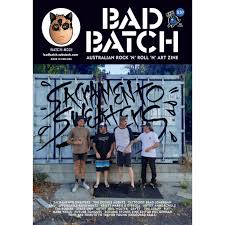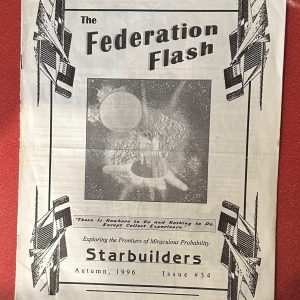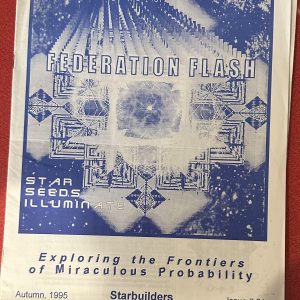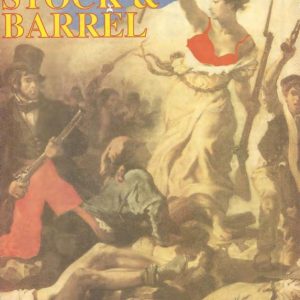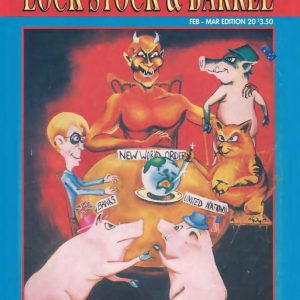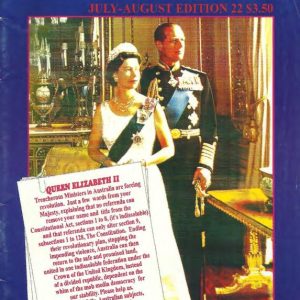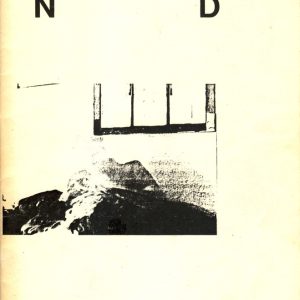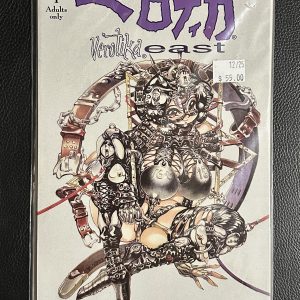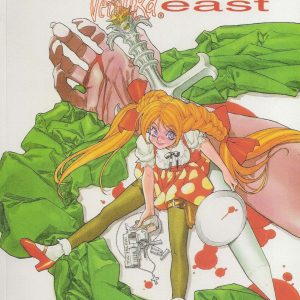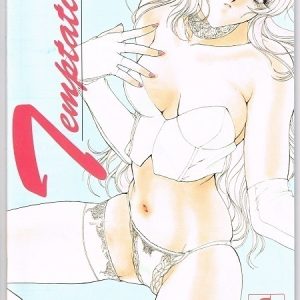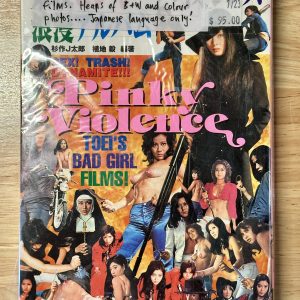Sign in
Login
Register
Jenkem, The First 10 Years
$120.00
A photo book from the famous skate magazine Jenkem Magazine, published in honor of the magazine's 10th anniversary. The book charts the first 10 years of the magazine's existence. Inside you will find articles, photos of skateboarding, communities, illustrations, magazine covers and more.
Add to cart
Bad Batch 005
$10.00
Get ready to rock with the latest issue of Bad Batch!
Filled to the brim with artist interviews, album and reviews and even colouring in pages!
Add to cart
Bad Batch 004
$10.00
Get ready to rock with the latest issue of Bad Batch!
Filled to the brim with artist interviews, album and reviews and even colouring in pages!
Add to cart
Bad Batch 003
$10.00
Get ready to rock with the latest issue of Bad Batch!
Filled to the brim with artist interviews, album and reviews and even colouring in pages!
Add to cart
Bad Batch Magazine 002
$10.00
Get ready to rock with the latest issue of Bad Batch!
Filled to the brim with artist interviews, album and reviews and even colouring in pages!
Add to cart
Bad Batch Magazine 001
$10.00
Get ready to rock with the latest issue of Bad Batch!
Filled to the brim with artist interviews, album and reviews and even colouring in pages!
Add to cart
FEDERATION FLASH: Exploring the Frontiers of Miraculous Probability (STARBUILDERS) Issue #34 (Autumn 1996)
$25.00
The beings at Starbuilders are emissaries of The Federation of Light, a council of over 1,000 E.T. masters that source from different dimensions, various locations in space and points in time. They are the only incarnated beings on the planet who represent this particular Council! When in human form they function as portals through which transdimensional energies, models of reality and technologies enter into the Earth Plane!
The Federation recently participated in Ascension work on a similar planet in the Orion Sector. Malenchen and Maruna were involved during the pre-transition phase. Zal and Zol were present at the time of the Ascension and witnessed the birth of a star.
The Federation of Light is just one of many Councils that are involved in Earth's Ascension Process. One of its specialties includes manifesting highly integrated and systematic technologies of consciousness which assist in the rapid manifestation of one's Divinity. They establish a solid, fifth dimensional, energetic foundation!
This shit is 100% serious! No joke.....
Ex Used condition
Add to cart
FEDERATION FLASH: Exploring the Frontiers of Miraculous Probability (STARBUILDERS) Issue #31 (Autumn 1995)
$25.00
The Federation of Light
The beings at Starbuilders are emissaries of The Federation of Light, a council of over 1,000 E.T. masters that source from different dimensions, various locations in space and points in time. They are the only incarnated beings on the planet who represent this particular Council! When in human form they function as portals through which transdimensional energies, models of reality and technologies enter into the Earth Plane!
The Federation recently participated in Ascension work on a similar planet in the Orion Sector. Malenchen and Maruna were involved during the pre-transition phase. Zal and Zol were present at the time of the Ascension and witnessed the birth of a star.
The Federation of Light is just one of many Councils that are involved in Earth's Ascension Process. One of its specialties includes manifesting highly integrated and systematic technologies of consciousness which assist in the rapid manifestation of one's Divinity. They establish a solid, fifth dimensional, energetic foundation!
This is a genuine newsletter publication. This is not a joke....
Ex Used condition
Add to cart
LOCK, STOCK AND BARREL: Magazine – Issue 9 (April/May 1993) (Conspiracy Theory) Australia
$25.00
Lock, Stock And Barrel was a pro-gun Magazine in Australia from the 1980s until 1996/7. It features many advertisements for suppressors, extreme books, instructions for illegal weapons and even advertisements for Militia groups. It had a column called "Revolution In Apathralia" talking about a hypothetical guerrilla movement in a Future Dystopian Australia which only seems to get closer and closer. Written and published by Ron Owen of Owen Guns. Gympie, Queensland.
Crazy!
Ex-Used condition
Add to cart
LOCK, STOCK AND BARREL: Magazine – Issue 20 (Feb/March 1995) (Conspiracy Theory) Australia
$25.00
Lock, Stock And Barrel was a pro-gun Magazine in Australia from the 1980s until 1996/7. It features many advertisements for suppressors, extreme books, instructions for illegal weapons and even advertisements for Militia groups. It had a column called "Revolution In Apathralia" talking about a hypothetical guerrilla movement in a Future Dystopian Australia which only seems to get closer and closer. Written and published by Ron Owen of Owen Guns. Gympie, Queensland.
Crazy shit here!
Ex-Used condition
Add to cart
LOCK, STOCK AND BARREL: Magazine – Issue 22 (July/Aug 1995) (Conspiracy Theory) Australia
$25.00
Lock, Stock And Barrel was a pro-gun Magazine in Australia from the 1980s until 1996/7. It features many advertisements for suppressors, extreme books, instructions for illegal weapons and even advertisements for Militia groups. It had a column called "Revolution In Apathralia" talking about a hypothetical guerrilla movement in a Future Dystopian Australia which only seems to get closer and closer. Written and published by Ron Owen of Owen Guns. Gympie, Queensland.
The ramlings in this magazine are wild!
Ex - used condition
Add to cart
ND 3 Zine – Contact Exchange Document – Issue 3 – June/July 1984 – mail art – performance art – industrial and experimental music, video, and film – Daniel Plunkett
$55.00
The first issue of N D appeared in 1982. At first it was planned that artists, musicians, etc would each send in a page of artwork or information. The first issue was mostly that; different pages of artwork from various networkers. Then beginning with N D 2, I did a couple of interviews (one with filmmaker Kurt Kren) and included those, along with a few reviews of magazines and audio releases. The magazine started out as a contact resource for mailart shows, audio projects and addresses. - Daniel Plunket (1995)
Add to cart
Product Categories
Product Status
New Products
© Trash Cult 2020. Website by Travis Pithie

